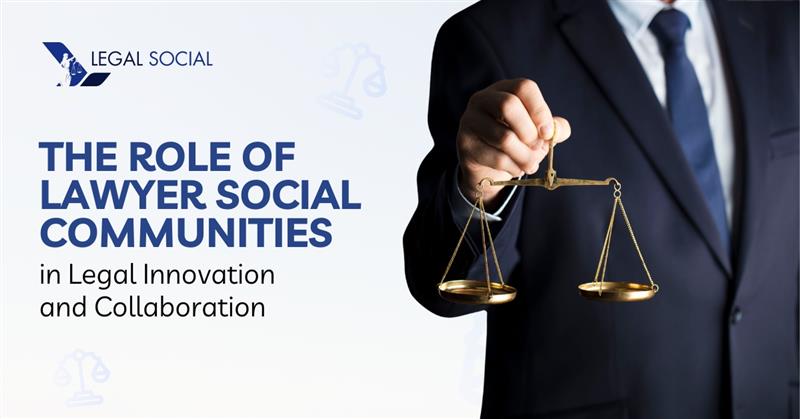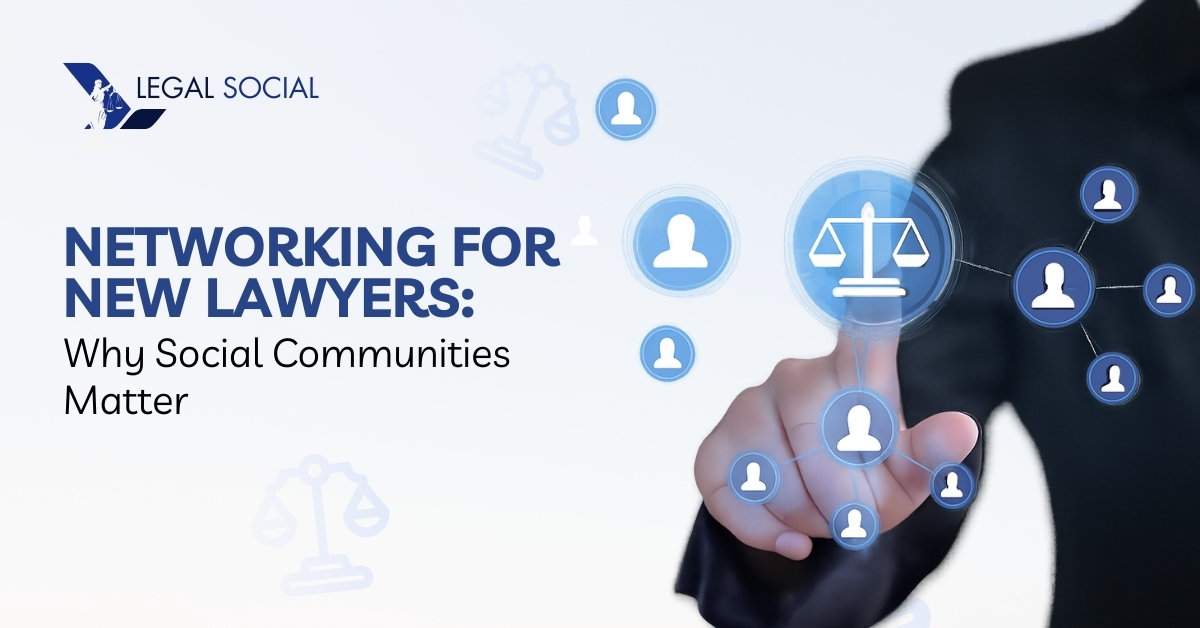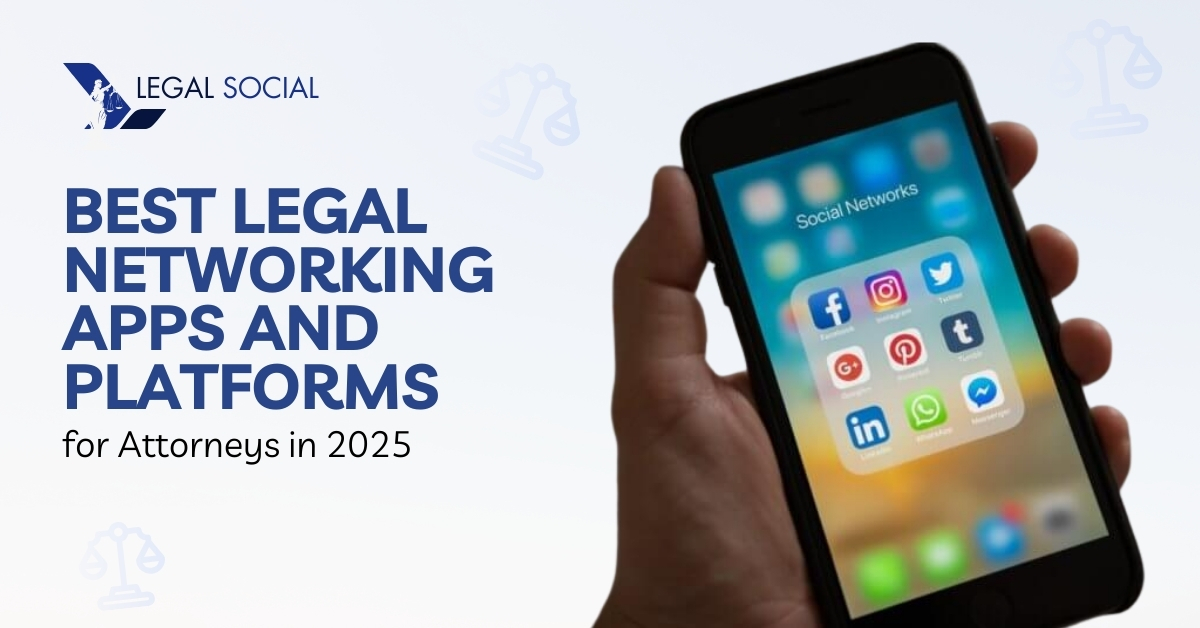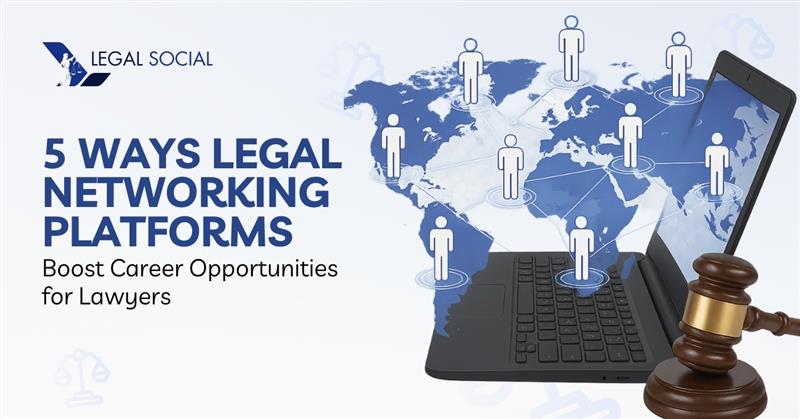Law has always been driven by precedent, tradition, and structure. However, over the past ten years, the profession has been in a state of exponential change. From digital case management platforms to tools that use artificial intelligence to assist with research, legal innovation is becoming less of an afterthought and more of a fundamental way of practicing law. Central to this change is something that is sometimes overlooked: lawyer social communities.
Lawyer networks, both in-person and digital, are changing the way legal professionals connect, share knowledge and experiences, collaborate, and advocate for meaningful change – not just between lawyers, but with those outside of the law, too. These are far more than “groups” or “forums” and are becoming real spaces for innovation, mentorship, and collaborative and cross-disciplinary problem solving.
This article will explain why lawyer social communities matter, how they are evolving, and their role in the future of legal practice.
What Are Lawyer Social Communities?
A lawyer social community simply is any platform or network, physical or digital, where legal professionals share ideas, knowledge, and opportunities. These can be LinkedIn groups about practice areas, professional forums (e.g., LegalTech communities), Slack channels for in-house counsel, WhatsApp groups for regional bar associations, or even specialized platforms built for lawyers.
Communities provide immediacy and interactivity compared to traditional bar associations or conferences. Instead of waiting to network at an annual event, lawyers can exchange ideas, talk about new developments, and think about solutions with fellow lawyers in real time, anywhere in the world.
Why These Communities Matter for Innovation
1. Faster Knowledge Sharing
Innovation occurs where information flows freely. Lawyer social communities allow members to share news about case law, regulatory changes, and best practices to other lawyers in a very short timeframe. A corporate lawyer in Mumbai could find out about a new compliance framework from a colleague in London in just a few minutes. This immediacy of access eliminates the silo and allows members to integrate their new ideas faster.
2. Cross-Disciplinary Collaboration
Legal practice intersects with technology, finance, sustainability, and human rights to an increasing degree. Communities that consist of lawyers from different areas of practice or sectors foster cross-disciplinary thinking. As an example, if a lawyer who focuses on blockchain regulations was looking for partners or collaborators, he or she would be likely to find others with similar interests, not in practice areas, but in the same strand in a community discussion thread linked to flexible fintech, or an integrated policy advocate for informed decision-making.
3. Peer Support and Mentorship
In addition to innovation, these communities also provide much-needed support. Junior lawyers can engage with experienced professionals and ask questions without the formalities that accompany traditional mentorship programs. This open exchange may enhance skill development and confidence, and lessen burnout.
Examples of Innovation Driven by Lawyer Communities
- LegalTech Adoption: A lot of AI-driven research tools grew in popularity because early adopters touted its benefits on lawyer forums online. Positive peer recommendations usually have more power than vendor marketing.
- Policy Advocacy: Lawyers can leverage their collective social communities to better advocate for awareness of pertinent legal issues. A collective voice can change public perceptions, engage legislators, and help promote the reform efforts.
- Collaborative Learning: Legal communities can support lawyers in learning about new areas such as data privacy, ESG regulations, or international arbitration using tools such as online meetups, webinars, and resource libraries.
The Digital Transformation of Lawyer Communities
Traditionally, legal networking seemed to mean attending conferences, alumni meet-ups, or bar association dinners. While these are still important, digital spaces have opened the doors for even more lawyer social communities that take on a virtual life of their own. Today, a lawyer can join a global group on LinkedIn, attend a virtual panel discussion, and write a research paper with peers from many countries in a week!
While many lawyers have long vie that digital networking will expand the breadth and reach of legal networking, it has also led to more inclusive opportunities for all kinds of lawyers. Lawyers in a small firm or isolated practice receive the same resources and relationships as lawyers in larger firms and cities. Also, with a global reach, discussions include more varied and inclusive perspectives that lead to richer discourse and more innovative solutions.
How Lawyer Social Communities Foster Collaboration
- Idea Development: Communities provide a safe space to try new ideas out, get feedback, and evolve your approach before launching something in public.
- Content Creation: Lawyers work together on white papers, bodies of research, or open-source legal word templates to benefit the whole profession.
- Referrals and Collaborating: Many lawyers get new clients, new collaborators, or co-counsel opportunities by being active within these networks.
In fostering open dialogue and sharing, lawyer social communities actively reduce the feelings of isolation often attributed to the profession while transforming individual expertise into collective strength.
Overcoming Challenges
Despite the advantages of lawyer social communities, they must overcome challenges. Data privacy, professional ethics, and fake news can all present issues in an informal community context. Moderation, clear community guidelines, and the collection of credible, verified sources will help with credibility and trust.
Another challenge is participation fatigue. There is a constant stream of competing online groups for lawyers’ attention and can make sustained participation harder. On the whole, lawyer communities that value discussion quality over quantity of posts have the most staying power.
The Future of Lawyer Social Communities
As technology continues to advance, chances are, lawyer social communities will become even more advanced. Here is what I envision:
- Platforms that embed legal research tools directly into the discussion forums.
- AI matchmaking connects lawyers with similar interests or complementary skill sets.
- Hybrid events that marry the benefits of in-person networking with digital collaboration.
In short, these communities will not only enhance connections for lawyers but will change the legal ecosystem.
Conclusion
Lawyer social communities are not just a place to network. They are spaces for collaboration, legal innovation, and professional development. The ability to break down barriers, allow quick access to information, and foster mentorship creates a support system for lawyers to navigate an ever-changing environment.
Legal professionals and firms need to heed the message: participation in these communities is no longer a “nice to have.” It is vital to stay relevant, informed, and connected to the world of law in a world of constant change.
Whether you are a solo practitioner looking for support, an in-house counsel interested in new compliance tools, or a firm looking for collaborative opportunities, lawyer social communities offer you the tools and relationships you need to thrive.










